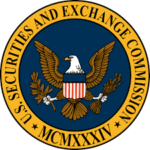The SEC chair said in a speech that new regulatory oversight may be coming for ESG claims and for mitigating cybersecurity risk.
 In the future, funds with a green sales pitch will need to prove that they understand and appreciate the importance of an ESG agenda.
In the future, funds with a green sales pitch will need to prove that they understand and appreciate the importance of an ESG agenda.
In other words, that it’s more than just a good story to con a customer to sign on the bottom line.
“ESG” stands for environmental, social, and corporate governance, and it is a measure of a firm’s or a fund manager’s recognition that social and environmental factors may be even more important than traditional financial metrics.
Recent fires and floods, and the prospect of more apocalyptic climate change to come, vividly illustrate why ESG has become important to Wall Street.
“Today, investors in our markets increasingly want to understand the climate risks, workforces, and cybersecurity risks of the companies whose stock they own or might buy.”
So said Securities & Exchange Commission Chair Gary Gensler in a recent speech to the European Parliament Committee on Economic and Monetary Affairs.
Not surprisingly in these troubled times, SEC Chair Gensler delivered the September 1, 2021 address, his fourth to the European Parliament committee and first since becoming SEC chair, via video link. And he began his remarks with a disclaimer:
“As is customary, I’d like to note that my views are my own, and I’m not speaking on behalf of the Commission or the SEC staff.”
That said, he told the European Parliament committee that he had “asked SEC staff to develop a proposal for climate risk disclosure requirements for the Commission’s consideration.
“In considering climate-risk disclosures, I’ve asked staff to learn from other frameworks and standards, including the Task Force on Climate-related Financial Disclosures (TCFD) framework.”
That task force, created by the Financial Stability Board (FSB), called for financial markets to have “clear, comprehensive, high-quality information on the impacts of climate change. This includes the risks and opportunities presented by rising temperatures, climate-related policy, and emerging technologies in our changing world.” To review the task force’s report, go to https://www.fsb-tcfd.org/ .
“On the other side of the equation are funds. Many funds these days brand themselves as ‘green,’ ‘sustainable,’ ‘low-carbon,’ and so on,” Gensler said.
The speech puts fund managers on notice that climate-friendly branding will need to be backed up by actual data that shows why the branding is more than a simple marketing ploy.
“I’ve directed staff to review current practices and consider recommendations about whether fund managers should disclose the criteria and underlying data they use to market themselves as such,” Gensler said, adding that he has also “asked staff to pursue similar disclosure requirements with respect to human capital and board diversity.”

Gary Gensler
Gensler is also looking into the impact and dangers of “platforms for crypto trading and lending,” whether they are “centralized or so-called decentralized finance (DeFi) platforms. Unlike traditional exchanges, like the Frankfurt Stock Exchange, crypto platforms provide direct access to millions of investors. There’s no broker in between the public and the platform. Therefore, absent clear investor protection obligations on these platforms, the investing public is left vulnerable.”
Crypto assets, he added, have been “been rife with fraud, scams, and abuse in certain applications.”
Gensler also addressed the importance of so-called “stablecoins — crypto tokens pegged to the value of fiat currencies” to the cryptography market.
This past July, he added, “nearly three-quarters of trading on all crypto trading platforms occurred between a stablecoin and some other token.”
One danger of stablecoins, according to Gensler, is that “these platforms may facilitate those seeking to sidestep a host of public policy goals connected to our traditional banking and financial system: anti-money laundering, sanctions, and more.”
To read Gensler’s entire speech, go to https://bit.ly/3BW2pSz
